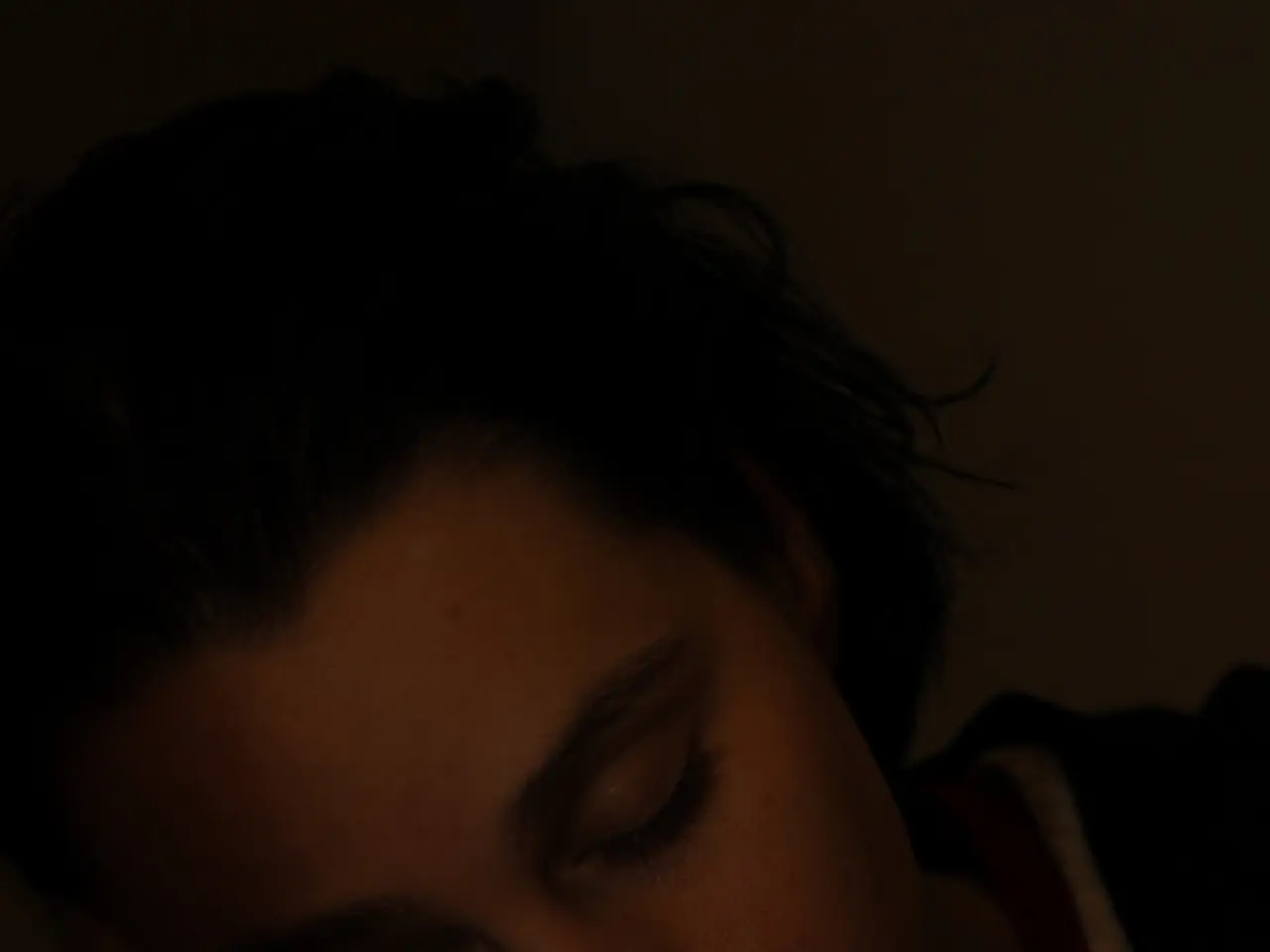Deep exploration of the intricate bond between depression and sleep: Insights and potential resolutions
In the intricate dance of mental health, the relationship between sleep disturbances and depression symptoms is a significant partner. This relationship is not one-sided, but bidirectional and complex, as both conditions often influence each other.
Sleep disturbances, such as insomnia, are strong predictors of future depression. Persistent insomnia increases the risk of developing depression over time, with frequent insomnia symptoms leading to a higher incidence of depression[1]. The relationship between sleep and depression is mediated by factors such as prolonged wakefulness, negative cognitive reinforcement, and maladaptive psychological processes like worry and rumination[1].
On the other hand, depression significantly reduces sleep quality, leading to reduced sleep duration and increased sleep disturbances. Approximately 50–90% of individuals with depression report sleep-related issues[2]. Depression can predict the onset of insomnia symptoms, creating a reciprocal relationship where both conditions influence each other over time[3].
This cyclical relationship makes it challenging to manage both conditions independently. For instance, depression can make people sleep more, a condition known as hypersomnia. Some people with depression struggle with chronic fatigue and difficulty getting out of bed, leading to oversleeping or multiple naps[4].
However, it's essential to note that hypersomnia alone is not a sign of depression; it must occur alongside other symptoms. Sleep problems can contribute to or exacerbate depression, but they are not a definitive indicator of the condition[5].
To break this cycle, establishing a consistent sleep schedule is crucial. No napping during the day can help establish this rhythm. Establishing a bedtime routine can help the body get in the mindset for sleep. Limiting caffeine intake and keeping electronic devices out of the bedroom can also improve sleep quality[6].
Daytime exercise can lead to sound nighttime sleep, but working out late might disrupt sleep. Organizing a support system can help keep one accountable in adjusting sleep patterns. Establishing reasoning and goals for improving sleep hygiene can help maintain the new habits[7].
Improved sleep patterns can have a positive impact on depression symptoms. Treating depression can help improve sleep quality, and conversely, addressing sleep disturbances is crucial for managing depressive symptoms[3]. This comprehensive approach emphasizes the importance of addressing both conditions simultaneously.
In conclusion, the interplay between sleep disturbances and depression underscores the need for a holistic approach to mental health care. By understanding the complex relationship between these two conditions, individuals can take proactive steps towards improving their sleep quality and managing their depression symptoms effectively.
Science has shown that sleep disturbances, such as insomnia, are closely linked to mental health, particularly depression, often forming a bidirectional and complex relationship. Poor sleep quality, often reported by 50–90% of individuals with depression, can exacerbate depression symptoms, while persistent insomnia increases the risk of developing depression over time. The health-and-wellness sector recognizes the significance of mental health and encourages practices that promote good sleep hygiene, as improved sleep patterns can have a positive impact on depression symptoms, and treating depression can, in turn, improve sleep quality.




